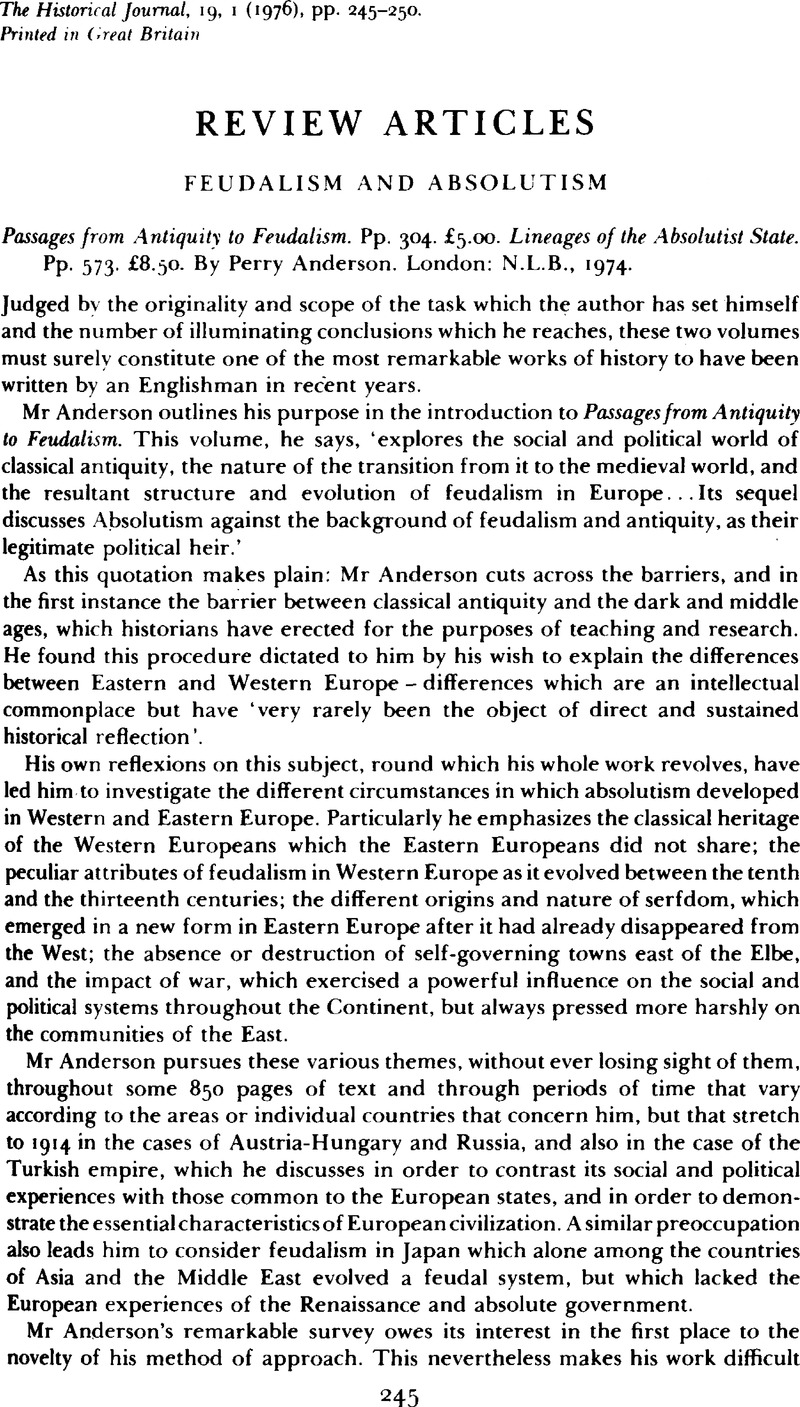Article contents
Feudalism and Absolutism
Published online by Cambridge University Press: 11 February 2009
Abstract

- Type
- Review Articles
- Information
- Copyright
- Copyright © Cambridge University Press 1976
References
1 Quoted by Fehrenbach, E. Traditionale Cesellschaft und revolutionares Recht (Göttingen, 1974), p. 60.Google Scholar
2 See n. 4 below.
3 See Bloch, Marc La lutte pour 1&individualisme agraire, in Annales, II (1930, and 1 m, Hinrichs, E. ‘Die Ablösung von Eigentumsrechten’, in Eigentum und Verfassung, ed. Vierhaus, R. (Göttingen, 1973).Google Scholar
4 See Eberhard Weis, ‘Ergebnisse eines Vergleichs der grundherrschaftlichen Strukturen Deutschlands und Frankreichs bis zum Ausgang des 18. Jahrhundert’ in Viertel-jahrschrift für Sozial- und Wirtschaftsgeschichte, LVII (1970). This compares the figures quoted by Godechot, Lefebvre, Labrousse and Soboul for the amount of land held re-spectively by nobles, bourgeois, peasants and the church at the end of the Ancien Koselleck, R.Preussen zunschen Reform und Revolution (Stuttgart, 1967), p. 83.Google Scholar
6 Ibid., pp. 80–1.
7 Ibid., p. 512.
8 See Leibeigenschaft, J. in ‘Russland und die Agrarverfassung Preussens im 18.Jahrb ündert’, in Jahrbiicher für Nationalokonomie und Stalistik, LXXXII (1932).Google Scholar
9 See Lütge, F. Geschichte der deutschen Agrarverfassung (Stuttgart, 1963), pp. 129 ff. Lütge maintains that from 1748 to 1807 the amount of land owned by the peasants in Brandenburg-Prussia remained constant.Google Scholar
10 See Koselleck, ‘Staat und Gesellschaft in Preussen,’ in Stoat und Gesellschaft im deutschen Vormd ärz,ed. Conze, W. (Stuttgart, 1962), pp. 97–9.Google Scholar
11 Fontane in his Reise durch die Mark Brandenburg (ed. Watterkeitel, in, 109) records the following remark made by Frederick the Great to a soldier who had distinguished himself in battle: ‘Hör’ Er mal, so wie es mit Ihm steht, kann nichts aus Ihm werden. Ich werd’ Ihn adeln. Welchen Namen will Er führen?’ On this whole question see P. Paret, Yorck and the Era of Prussian Reform (Princeton, 1966).
- 1
- Cited by


